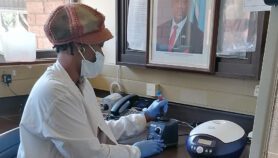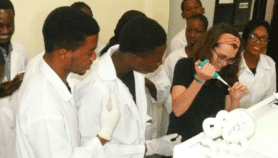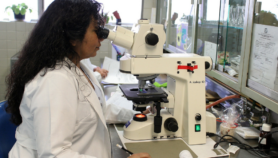By: Osita Ogbu
Send to a friend
The details you provide on this page will not be used to send unsolicited email, and will not be sold to a 3rd party. See privacy policy.
To vanquish poverty, Africa needs a new cadre of policy researchers with expertise in the role of science and technology in development, argues Osita Ogbu.
Few people inside or outside African government fully understand the importance of science and technology policy, writes Osita Ogbu. As a result, the continent lacks capacity in the field.
But such capacity is crucial if Africa’s research and development institutions are to fulfil their potential to stimulate social development and economic growth.
In this book chapter, Ogbu — former director of the African Technology Policy Studies (ATPS) network, now senior economic advisor to the president of Nigeria — discusses why Africa has failed to create an environment conducive to science and technology policy research, and why the need for such research is now growing.
One reason is that many new democratic governments are putting together national economic recovery plans, driven by the desire to deliver the ‘democracy dividend’ of visionary leadership, improved political participation and space for dialogue.
In addition, some African governments — such as those of Kenya, Nigeria and South Africa — have established economic and social advisory councils, and appointed high-ranking advisers on science and technology.
The science and technology policy platform of the New Partnership for Africa’s Development (NEPAD) will also boost demand for policy research, argues Ogbu.
But these new opportunities are tempered by a number of capacity issues, such as the need for training in how to adapt models that have proved useful elsewhere, and how to influence policy processes.
ATPS, for example, has a mandate to improve the governance of science and technology for Africa’s development by supporting research, training and advocacy, and by encouraging in-depth reflection on technology and knowledge in the context of African values and culture.
Networks like this will be crucial in creating "a cadre of African intellectual freedom fighters who are willing and able to use their knowledge to liberate the continent from poverty", concludes Ogbu.
Osita Ogbu is the former director of the African Policy Studies Network and is currently a senior economic adviser to the government of Nigeria.
Link to full chapter* by Osita Ogbu ![]() [57KB]
[57KB]
*Osita Ogbu’s article is published as a chapter in Dialogues at the Interface: Science and technology policy for development, edited by Louk Box and Rutger Engelhard (2006). Additional chapters may also be downloaded for free.
Find out more about the 2007 African Union summit in our dedicated news focus and by joining the related discussion group.













